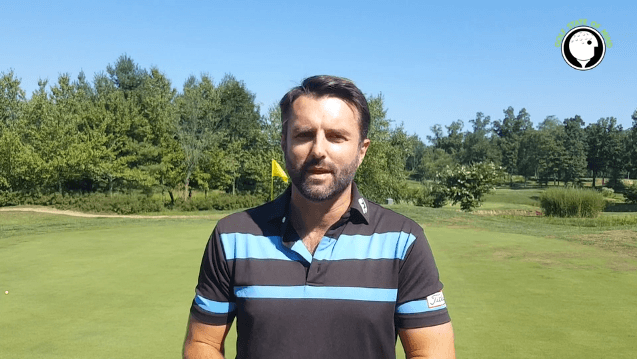
Why do you need a Mental Coach?
As you’ll know if you’ve followed my blog for any length of time, the physical game is only one piece of the “complete player” puzzle. To really separate yourself from the competition requires developing a winner’s mind-set and mental toughness. But achieving the “Golf State of Mind” is a lot quicker through structured individualized mental golf coaching, rather than sifting through books and articles.
Most Tour players now work with a sports psychologist or “mental game coach”. But what exactly is mental golf coaching?
1. Improve a player’s mental skills during performance and practice
Where you put your focus before and during the round, will affect your performance. Unless you have a mental plan (and the skills) to stay focused, positive and relaxed, you won’t be able to access your best physical skills. A good mental coach knows exactly what mental mistakes in golf you are making and how to help you build the skills to eliminate them.
2. Help you build the Optimal Shot Routine
Identifying what it is that you need to focus on during your shot routines and holding you accountable to it is a key part of mental golf coaching.
3. Help you prepare for competition
How you approach a tournament during the weeks and days leading up to it, can make a big difference in the end result. Keeping the focus on the process of preparation and not focusing on the ultimate result is key. Mental golf coaching helps you determine helps you prepare in the best possible way to maximize your chances of a great performance.
4. Help you believe in yourself and build confidence
Competitive golfers can often be overly critical of themselves, which damages confidence. Mental golf coaching will reinforce positives, highlight a player’s talents and make them feel good about their game.
5. Help you deal with set-backs
Dealing with and accepting failure as a way that any successful player improves is a key part of mental coaching for golf. The mental coach’s job is to help a player look at a set-back objectively and see it as a positive learning experience.
6. Help you Reduce Fear
Fear of failure is something that often prevents a player succeeding in competition. Finding out the source of this fear and facing it head on is key. A mental coach will help you with this.
7. Keep you accountable and setting goals
Unless a player (especially a younger player) has accountability for achieving their process goals (which they need to do to achieve their performance goals), they can often let things slide. A good mental coach can provide much needed accountability for good practice and process goals. The coach should also help a player set appropriate goals to keep a player motivated to achieve them.
8. Help you deal with pressure
No matter how talented you are, if you can’t deal with the pressure of a big competition, you’ll never reach your potential. Learning how to cope with pressure by using stress reducing techniques and not getting overwhelmed with the situation is a skill that any golfer who wants to become an elite player needs
How does mental golf coaching work?
Step 1: Assess your mental game strengths and weaknesses
Discussion topics between coach and student (weekly or bi-weekly)
- Performance issues that trouble you
- Emotional issues holding you back
- Increasing awareness of what’s triggering good and bad performances
- Learning the tools to help mental and emotional control
- How to access the Peak Performance State (The Zone) more often
- Where to put your focus during the round and quieten the mind
- How to use self-talk
- Body language development
Assignments/Exercises:
- Mental game scorecard
- Post-round review process
- Success log – highlighting success and building self-image
- Visualization/Mental rehearsal exercises
- Relaxation/Mindfulness exercises
- Effective practice – making practice harder than the game
- Pre-round routines
Why mental golf coaching works:
- The coach is a neutral party – players can often find it difficult to talk to parents and family about what’s holding them back
- Accountability
- A clear plan – let’s make a better mental game a “process” of incremental improvement
- Years of experience working with players
Would you like to get a taste of what it’s like to work with a mental coach?
Get a free 15 min consultation to learn more about the mental coaching process.


